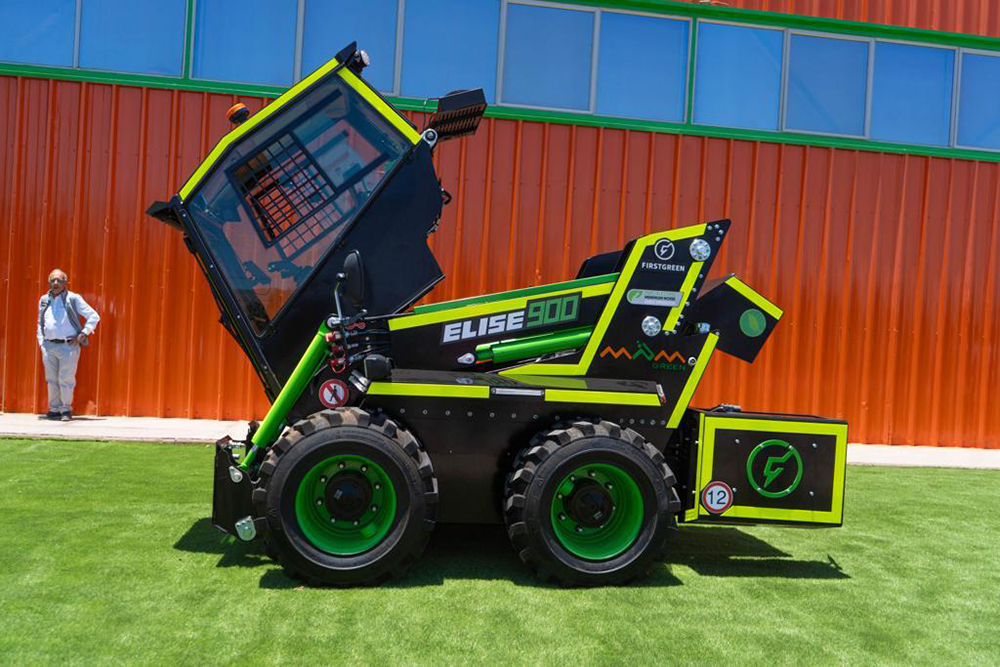In the beginning stages of a technological transformation, the new tech tends to conquer the best use cases first. Regular Charged readers will be familiar with EV-friendly applications such as drayage trucks, delivery vans, school buses and suburban yuppies, but here’s one you may not have heard of: skid steer loaders.
A skid steer is named for—you guessed it—the way it steers. Its wheels or tracks can move independently in forward or reverse, giving it an extremely tight turning radius. Skid steers are simple, compact, versatile vehicles, and they’re used by the millions in construction, industrial and agricultural applications.
Firstgreen Industries, which is headquartered in the Czech Republic and has a US headquarters in North Carolina, is breaking into the US skid steer market, competing with established equipment manufacturers such as Bobcat (which recently introduced an electric skid steer loader).
Firstgreen has recently expanded its North American footprint—its machines are now sold at nearly 20 dealerships, and the company reports that over 120 of its loaders are operating across the US and Canada.

“Firstgreen aims to transform the loud, dangerous and dirty diesel-powered skid steer industry with a more environmentally sustainable solution that reduces ownership costs and is easy to integrate into large machinery fleets,” says the company. “Firstgreen’s machines bring near-silent operation, zero emissions, minimum operating fluids, and minimum maintenance. The machines are also 98% recyclable.”
“In the US, we’ve seen a significant spike in interest for our skid steer loaders over the last year, with expanding use cases in waste management, landscaping, power plants, mining and more,” said Marcus Suess, Firstgreen’s US CEO. “This is being driven not only by a shifting mindset toward cleaner, safer, more sustainable solutions in off-road environments in line with Scope 3 emissions goals, but by the affordability and practicality of our machines. Operating costs of our skid steer loaders are up to 10 times lower than diesel machines, and pay for themselves in about 18 months. Further, the battery life enables operators to work a full day in most cases.”
“Switching to the Elise900 electric skid steer has revolutionized my mountainous 17-acre property,” said Colorado farmer Doug Thomas. “The decision to go electric eliminated diesel use, providing cost savings and mitigating fire risks during dry seasons. The machine seamlessly navigates challenging terrains, addressing diverse needs in agriculture, forestry and snow removal, even handling 15% grades with ease. With zero fuel costs, minimal emissions and year-round usability, it outperformed traditional diesel machines, and it’s priced competitively.”
Source: FirstGreen







